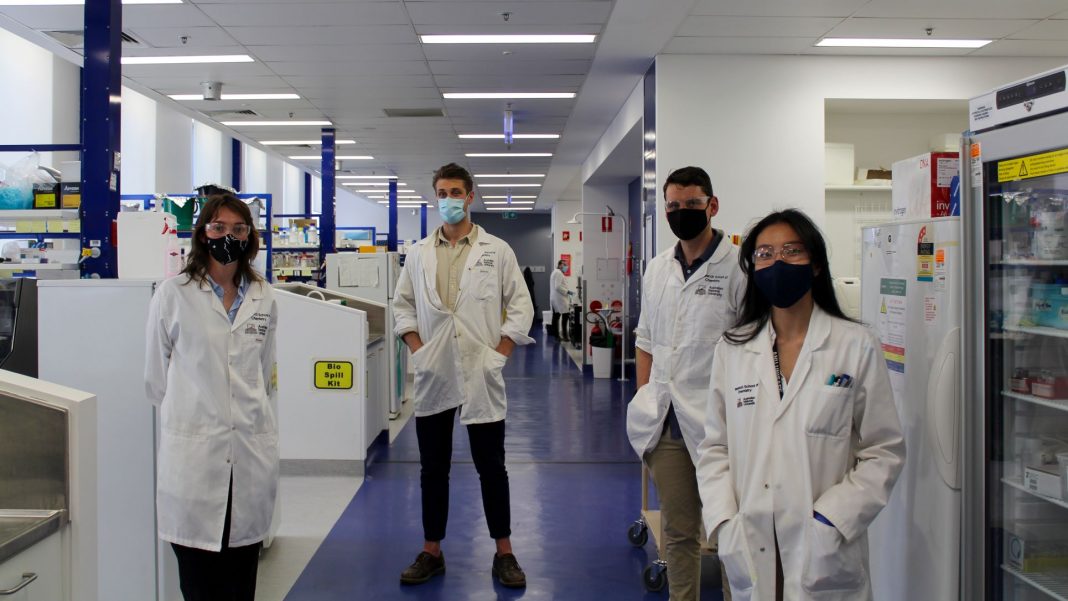“If we’re determined to solve the plastic crisis, we need to start with where the problem lies, which is how it’s made and recycled,” says Paul Riley, CEO and Co-Founder of Australian enviro-tech startup, Samsara.
Supported by the Australian National University (ANU), the Woolworths Group, and venture fund Main Sequence, Samsara offers an innovative solution to plastics recycling that is carbon-neutral, environmentally sustainable and doesn’t alter consumer behaviour.
Samsara’s climate research reveals an environmental crisis which has been forming for nearly 70 years and is considered one of the biggest threats facing the global population.
Each year, 10 to 50 million tonnes of plastic enter the Earth’s oceans; by 2050, the weight of the plastic pollution in the ocean will be heavier than all the fish combined.
Around 100 million marine animals are killed per year through ingestion or strangulation by plastics floating in the ocean, and alarmingly, between 400,000 and one million people die each year due to mismanaged plastic waste.
Around 50 per cent of the 400 million tonnes of plastic that has been produced on Earth has been created in just the last 20 years, with only one per cent of those items having been recycled and still in use, whereas 55 per cent have been thrown in landfill or discarded.
In Australia, out of the two and a half million tonnes of plastic waste consumed by our population each year (on average), 84 per cent ends up in landfill with only nine per cent sent to recycling plants.
Current recycling methods are costly and inefficient which is the main reason Australia’s recycling percentage is so low.
Samsara’s new technology will initially focus on PET plastic and polyester, which account for a fifth of annual plastic production. Ultimately, the company is striving to advance the process so that every kind of plastic will be able to be infinitely recycled.
Mr Riley said Samsara’s technology represents a major breakthrough that is hoped will end plastic pollution so future generations can have a healthier and cleaner future.
“Samsara’s recycled plastic looks and performs like the original, minus the environmental price tag. For consumers, it will remove the time and energy that goes into thinking about what products to purchase because Samsara plastic is not only recycled, it’s infinitely recyclable,” Mr Riley said.
“We’re working with the brightest minds in Australia from ANU and Main Sequence to create a completely new way to tackle one of the biggest environmental challenges we face in plastics. Our vision is big, and we are laser focused.”
ANU Vice-Chancellor and Nobel Prize laureate Professor Brian Schmidt said ANU has some of the greatest researchers in the world and backs the startup completely.
“Samsara has the potential to address a massive world change, and if we don’t address it soon it will be too late,” Professor Schmidt said.
“We’re proud to be the driving force behind Samsara, bringing to life technology that can have real impact in the world by helping to solve the plastic pollution crisis.”
The Woolworths Group will be turning the first 5,000 tonnes of Samsara recycled plastic into its own brand’s packaging, which cancels the production of the equivalent weight of almost nine A380 aircrafts’ worth of plastic.
“As Australia’s largest retailer, we want to use our scale for good to drive innovation that can not only reduce our own footprint, but help our suppliers and competitors make positive change across the board,” Woolworths Group CEO Brad Banducci said.
“We’ve co-founded Samsara to play a part in addressing one of the most challenging sustainability problems of our time and we’re excited to work together on its first retail product, which will be tested in our supply chain.”
Samsara’s sustainable plastic products are expected be in Woolworths stores within the next two years, starting with packaging on products like mini tomatoes.
Get all the latest Canberra news, sport, entertainment, lifestyle, competitions and more delivered straight to your inbox with the Canberra Daily Daily Newsletter. Sign up here.



